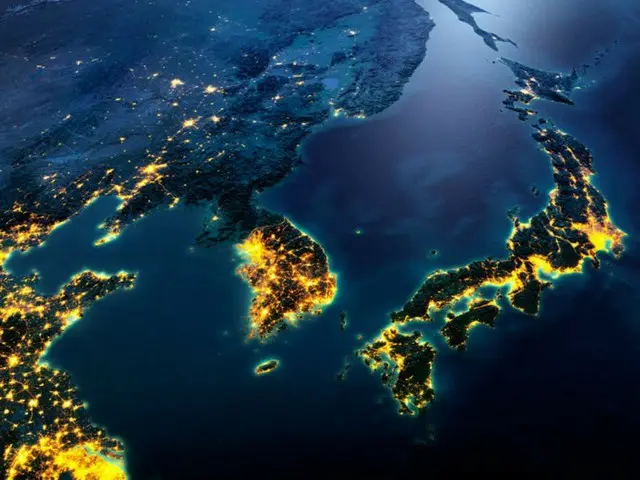They are concerned that the country will face a foreign exchange crisis as confidence from abroad plummets amid the turbulent political situation and capital outflows increase due to the sharp fall in the won/dollar exchange rate.
There are also concerns about the worst-case scenario. Major domestic and international institutions, as well as the Korean government, have already predicted that next year's economic growth rate will be in the 1% range, and the greater the domestic political risk, the greater the possibility of a
It has been pointed out that the blow to the economy will inevitably be large. According to political circles and bureaucrats, the Democratic Party of Korea will file an impeachment motion against Acting President Han (for dereliction of duties and sympathy with civil unrest) on the 27th.
However, he warned that the matter would be debated in the National Assembly plenary session. However, this was premised on the assumption that Acting President Han “does not appoint constitutional justices.” If the impeachment motion against Acting President Han were to actually pass, the president would be
The acting head of state will be Deputy Prime Minister for Economic Affairs and Minister of Strategy and Finance Choi Sang-mok, who is the next highest ranking member of the State Council. This is the first time such a position has been appointed since the current constitution was enacted.
In particular, the opposition party has warned that if the current administration rejects the two special investigation bills (the Special Investigation Bill for the General Insurrection and the Special Investigation Bill for First Lady Kim), even Deputy Prime Minister Choi could be subject to impeachment.
If that were to happen, there is a risk that the government's role as the control tower for the economy would collapse. Deputy Prime Minister Choi announced during an emergency questioning session of the National Assembly's Planning and Finance Committee that he would take responsibility for the Dec. 3 emergency martial law incident and resign.
Deputy Prime Minister Choi stated, "If my personal announcement of my resignation were to be reported in the foreign media, it would have a negative impact on our credibility in the international community."
"The weight of my public office is also what is holding me back, as it could have a major impact on the economy," he said. This is because if the economic control tower becomes unstable, distrust will grow, especially among foreign investors, and foreigners will be forced to resign.
This means that concerns about a decline in investment sentiment and capital outflows may become a reality. Experts have warned that the economic growth rate next year may fall to the 0% range due to political instability.
The Bank of Korea recently announced that next year's economic growth rate would be 1.9%, which was the figure before the impeachment crisis began. Moreover, the incoming Trump administration is teasing high tax rates.
Even the conservative South Korean government is estimating next year's growth rate to be below 2 percent, which is a psychological defense line for growth.
"Consumption is shrinking due to the current economic situation, and there is a risk of a downside from the usual uncertainties, so it is highly likely that the growth rate will fall below the potential growth rate," he said.
The growth rate is usually around 2%, but it is expected to be in the upper 1% range. Shin Se-dong, professor emeritus at the Department of Economics at Sookmyung Women's University, said, "Even before the civil war and impeachment political situation began, the growth rate was already at 1.9%.
"If the political situation worsens further, the index will likely fall by at least another 0.5 percentage points, since the index was previously forecast to fall by 0.5 percent.
"If the acting chief is impeached at a time when the situation needs to be resolved, which investors will trust and invest in South Korea?"
Since 1980, the only years in which the growth rate was recorded below 2% were 1980, when the second oil shock occurred (minus 1.6%), and 1998, when the country experienced a currency crisis (minus 5.1%).
The only other times it has fallen are in 2009 (0.8%) during the global financial crisis, 2020 (minus 0.7%) during the COVID-19 virus pandemic, and 2023 (1.4%).
Kim Jeong-sik, professor emeritus at the Department of Economics at Yonsei University, said, "From a foreign perspective, the Korean economy has low credibility and there is a lot of uncertainty, which is why the currency crisis has occurred, with the exchange rate plummeting and capital outflows.
"If political instability continues, growth could fall to the mid-1 percent range or below next year," he said.
Professor Kim Sang-bong of the Department of Economics at Hansung University also said, "Korea has already been in the sixth grade.
"We have been experiencing seven years of long-term low growth, and political instability is threatening to cause the growth rate to fall to as low as 1.6 percent," he said. "As early as next year, we will have to pay 11.6 trillion won (approximately 1.26 trillion won) in debt.
However, this is nothing more than a one-off measure that will only have a temporary effect in the first half of the year. The ruling and opposition parties and the government must work together to resolve this issue, even if it is just in the economic field.
It's time," he emphasized.
2024/12/26 07:10 KST
Copyrights(C) Edaily wowkorea.jp 107

